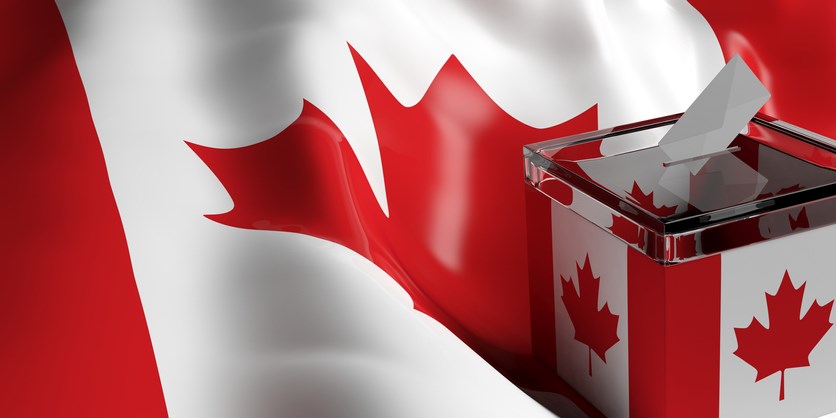Little changed on the Canadian political landscape as polls closed across Canada Sept. 20.
Votes were still being tallied at Western Producer deadlines Monday night, with some people still standing in line to cast ballots in Ontario and British Columbia.
At that time the Liberals and prime minister Justin Trudeau were expected to hold on to a minority government, even if the results changed slightly at the end of counting. And that was the case by Tuesday morning.
That suggests western farmers can expect more of the same in terms of policy focused on climate change and the environment.
Marie-Claude Bibeau, federal agriculture minister since March 2019, was re-elected in her Quebec riding of Compton-Stanstead.
The ongoing review of and work toward the next agricultural policy framework will be a main priority for whoever gets the portfolio in the next government. The Canadian Agricultural Partnership expires in March 2023.
Bibeau and the prairie provinces have been at odds over changes to AgriStability, with Bibeau pushing a change in compensation rate from 70 percent to 80 percent and her provincial counterparts refusing to budge.
The Canadian Federation of Agriculture has said the change should be implemented in provinces that would pay their share. That would create a two-tier program that the federal government hasn't yet agreed to.
Bibeau has also said future programs should include "climate risk" but hasn't elaborated on what that means.
"The world is changing faster than we would have thought and this is important to make sure that our BRM programs meet this new reality," she said during the CFA-hosted debate of agricultural representatives from the parties.
The Liberals also came to the table with AgriRecovery funds for ranchers and farmers, largely in western Canada, affected by the widespread drought this past summer.
Despite making more money available to farmers through the two business risk management programs, the Liberals didn't fare much better on the Prairies than they did two years ago.
They won four seats in Manitoba, the NDP took three and the Conservatives 7, but did not gain in Saskatchewan, where Conservative blue held firm with 14 of 14 seats. Alberta saw one Liberal elected in Edmonton and two NDP seats, a new one in Griesbach, adding to Edmonton Strathcona, while Calgary gave up one Liberal seat in the suburban northeast.
Saskatchewan went solidly Conservative blue, although Saskatoon West was very close run for the NDP.
British Columbia is sending 13 Conservatives to Ottawa, 13 NDP and 15 Liberals, along with one Green from the Island, Elizabeth May.
At press time Monday night, the Liberals were elected or leading in 157 seats, the Conservatives in 122, the NDP 28, Bloc Quebecois 29, and the Green Party, two.
By Tuesday morning the results had shifted to 158 for the Liberals, 119 for the Conservatives, the NDP 25 and the Bloc 34, with the Greens holding 2.
At dissolution the Liberals had 155 seats, Conservatives 119, NDP 24, Bloc 32, Greens 2 and six were vacant.
There had been concerns that the People's Party of Canada and Maverick Party, running in western Canada, would split the right-wing vote. Neither party elected any candidates and PPC leader Maxime Bernier failed to win his seat.
Bernier, interviewed by CBC early during the count, said the PPC would be the "only real opposition party in Canada."
Trudeau and Conservative leader Erin O'Toole were re-elected. NDP leader Jagmeet Singh was leading in his B.C. riding. Green Party leader Annamie Paul was not elected in Toronto.
Agriculture critics Lianne Rood for the Conservatives and Alistair MacGregor for the NDP were expected to be re-elected. Former NDP agriculture critic Ruth Ellen Brosseau was leading the incumbent BQ candidate and standing agriculture committee member Yves Perron.
Although the Liberal government has touted agriculture as a significant economic sector and a key to the economic recovery from COVID-19, the sector failed to attract any attention from the leaders on the national campaign.
All the parties pledged their support for supply management and compensation for farmers who lost markets due to trade agreements. All also offered climate change plans. Farmers will now be watching for details on how the re-elected Liberals plan to reach their climate targets while keeping them in business.
Some of the close races could be affected by the advance and mail-in ballots. Elections Canada reported that nearly 5.8 million votes were cast ahead of Sept. 20, up 18.5 percent from 2019 and likely due to pandemic concerns with in-person voting. Mail-in ballots totaled about 800,000.
Although the Liberals were expected to form government, the Conservatives once again took the popular vote at 34 percent to the Liberals' 32.2 percent, according to Elections Canada data. The NDP had 17.7 percent and the Bloc, 7.8 percent. Other parties, including the Greens, and independent candidates captured 8.4 percent.





